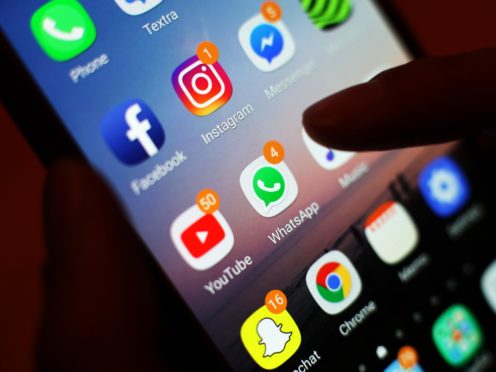Tech companies have “only shifted superficially” in their approach to privacy since the start of the fake news inquiry, a committee chairman has said.
The “ongoing” threats to democracy will be combated by a sub-committee on disinformation which will be headed up by Damian Collins, Conservative MP for Folkestone and Hythe.
Mr Collins said the lack of action was “unacceptable” and vowed that the body, set up by the Digital, Culture, Media and Sport Committee (DCMS), would continue to apply pressure.
It will also build on knowledge gained from the inquiry, which began in September 2017 and culminated in a final report released in February.
I am pleased to announce that @CommonsCMS has today launched a Sub-Committee to continue Parliamentary scrutiny of threats posed by ‘disinformation’. There is a strong public interest in continuing this work. More information can be found here: https://t.co/7Yjn0W6Mk1
— Damian Collins (@DamianCollins) April 2, 2019
The 18-month probe made headlines throughout 2018 for its revelations around the effects of social media on society, Facebook’s handling of users’ data and how the official Brexit campaigns broke electoral law during the 2016 EU referendum.
Mr Collins said: “As we stated at the time, our report on disinformation and fake news was not the final word on the matter.
“We believe that there’s a strong public interest in establishing the sub-committee to continue probing ongoing threats posed by disinformation to democracies, a threat that hasn’t disappeared with the end of our inquiry.
“We look forward to continuing the highly important work that we have begun.
“Since beginning our investigations, tech companies have only shifted superficially in their approach to privacy, and only for the benefit of their own PR.
“It’s unacceptable and we must keep up the pressure for them to shift their approach to ensure people and their rights are protected.”
In February’s report, the DCMS said ethics guidelines were needed to set out what is and what is not acceptable on social media.
The latter includes harmful and illegal content that has been flagged to the platforms by users or identified by the companies themselves.
If tech companies fail to meet their obligations under the code, then an independent regulator should be able to launch legal proceedings against them and have the power to issue large fines, the MPs said.
The committee also called for a comprehensive review of the current rules and regulations surrounding political work during elections and referenda, and separately urged the Government to put pressure on social media companies to publicise instances of disinformation.
Announcing the sub-committee on Tuesday, the DCMS said it would enable them to protect people “from the insidious onslaught of disinformation and digital disruption”.
It will hold evidence sessions in May with Culture Secretary Jeremy Wright and Information Commissioner Elizabeth Denham.
Part of its role will be scrutinising the Government’s response to the DCMS report in February and a white paper on online harms which is due in the near future.
It will also meet with representatives from other countries in Canada at the end of May.
The announcement comes as Facebook founder Mark Zuckerberg, who turned down an invitation to appear before the inquiry three times, flies to Ireland for a meeting with politicians at his company’s Dublin office.
On Saturday Mr Zuckerberg published an opinion piece in the Washington Post calling on “governments and regulators” around the world to devise new rules for the internet.
